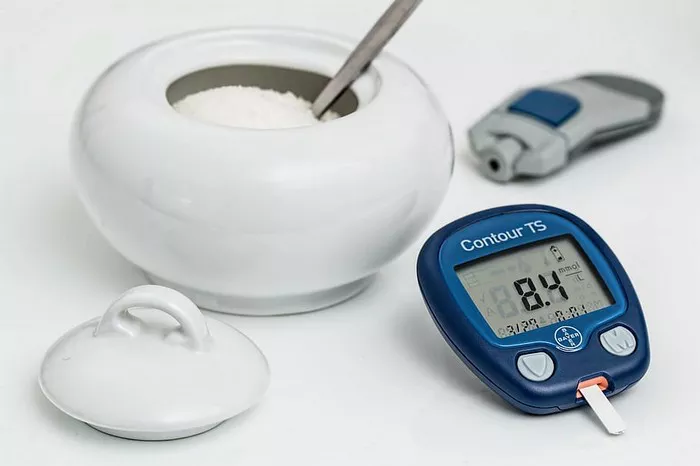Diabetes, a chronic metabolic disorder characterized by elevated blood sugar levels, has emerged as a global health concern affecting millions worldwide. While medical advancements have improved treatment options, the cornerstone of effective diabetes management remains a balanced diet. In this comprehensive article, we delve into the critical importance of maintaining a balanced diet in the management of diabetes.
Understanding Diabetes
Before delving into the role of diet, it’s imperative to grasp the fundamentals of diabetes. The condition primarily manifests in two forms: type 1 and type 2 diabetes.
Type 1 diabetes results from the autoimmune destruction of insulin-producing beta cells in the pancreas, leading to insufficient insulin production. On the other hand, type 2 diabetes involves insulin resistance, where cells fail to respond adequately to insulin, and progressive decline in insulin secretion by pancreatic beta cells. Both types result in elevated blood glucose levels, contributing to various complications affecting vital organs such as the heart, kidneys, eyes, and nerves.
Importance of Diet in Diabetes Management
A balanced diet plays a pivotal role in diabetes management, influencing blood sugar control, weight management, and overall health. Here are key reasons why maintaining a balanced diet is crucial for individuals with diabetes:
- Blood Glucose Control: Diet directly impacts blood glucose levels, making it a fundamental aspect of diabetes management. Carbohydrates, in particular, significantly influence blood sugar levels as they are broken down into glucose during digestion. Consuming a balanced diet helps regulate carbohydrate intake, preventing drastic fluctuations in blood glucose levels.
- Weight Management: Obesity and excess body weight are major risk factors for type 2 diabetes and can exacerbate complications in individuals with diabetes. A balanced diet promotes weight management by providing essential nutrients while controlling calorie intake. Incorporating a variety of nutrient-dense foods such as fruits, vegetables, lean proteins, and whole grains helps maintain a healthy weight and reduces the risk of obesity-related complications.
- Prevention of Complications: Diabetes increases the risk of various complications, including cardiovascular disease, neuropathy, nephropathy, and retinopathy. A balanced diet, rich in antioxidants, vitamins, and minerals, helps reduce inflammation, oxidative stress, and other factors contributing to the development of complications. Moreover, maintaining stable blood glucose levels through diet can mitigate the risk of diabetic complications.
- Heart Health: Individuals with diabetes are at a higher risk of developing cardiovascular diseases such as heart attack and stroke. A balanced diet that includes heart-healthy fats, fiber, and low-glycemic carbohydrates can improve lipid profiles, lower blood pressure, and reduce the risk of cardiovascular events. Emphasizing foods rich in omega-3 fatty acids, such as fatty fish, nuts, and seeds, can further support heart health in individuals with diabetes.
Components of a Balanced Diet for Diabetes
A balanced diet for diabetes incorporates a variety of nutrient-rich foods while controlling portion sizes and monitoring carbohydrate intake. Here are key components of a balanced diet tailored for individuals with diabetes:
- Carbohydrates: Carbohydrates have the most significant impact on blood glucose levels and should be consumed in moderation. Focus on complex carbohydrates with a low glycemic index (GI), such as whole grains, legumes, fruits, and non-starchy vegetables. These foods are digested slowly, leading to gradual increases in blood sugar levels and better glycemic control.
- Proteins: Protein is essential for muscle repair, immune function, and overall health. Incorporate lean sources of protein, such as poultry, fish, tofu, legumes, and low-fat dairy products, into meals and snacks. Protein-rich foods can help stabilize blood sugar levels and promote satiety, reducing the risk of overeating and excessive carbohydrate consumption.
- Fats: While excessive saturated and trans fats can increase the risk of cardiovascular disease, healthy fats are an important component of a balanced diet. Choose unsaturated fats, including monounsaturated and polyunsaturated fats, found in sources such as olive oil, avocado, nuts, and seeds. These fats can improve lipid profiles, reduce inflammation, and support overall heart health.
- Fiber: Dietary fiber plays a crucial role in regulating blood sugar levels, promoting digestive health, and preventing constipation. Aim to include ample amounts of fiber-rich foods, such as whole grains, fruits, vegetables, legumes, and nuts, in your diet. Fiber slows down the absorption of glucose, resulting in more stable blood sugar levels after meals.
- Micronutrients: Vitamins and minerals are essential for various metabolic processes and overall health. Ensure adequate intake of micronutrients by consuming a diverse range of fruits, vegetables, whole grains, lean proteins, and dairy or dairy alternatives. Pay particular attention to nutrients like magnesium, chromium, vitamin D, and B vitamins, which play key roles in glucose metabolism and insulin sensitivity.
- Hydration: Proper hydration is vital for individuals with diabetes to maintain optimal kidney function, prevent dehydration, and support overall health. Drink plenty of water throughout the day and limit the consumption of sugary beverages and alcoholic drinks, which can spike blood sugar levels and contribute to excess calorie intake.
Practical Tips for Implementing a Balanced Diet
Transitioning to a balanced diet can be challenging, especially for individuals accustomed to unhealthy eating habits. Here are some practical tips to help you implement a balanced diet and manage your diabetes effectively:
- Meal Planning: Plan your meals and snacks in advance to ensure a balanced intake of nutrients throughout the day. Include a combination of carbohydrates, protein, and healthy fats in each meal to promote satiety and stable blood sugar levels.
- Portion Control: Monitor portion sizes to prevent overeating and maintain calorie balance. Use measuring cups, spoons, or visual cues to estimate appropriate portion sizes of different food groups.
- Carbohydrate Counting: Learn to count carbohydrates to better manage blood glucose levels. Familiarize yourself with the carbohydrate content of common foods and adjust portion sizes accordingly to achieve your target carbohydrate intake.
- Regular Monitoring: Monitor your blood glucose levels regularly using a glucometer or continuous glucose monitoring system. Keep track of your readings and identify patterns to make informed dietary adjustments.
- Physical Activity: Combine a balanced diet with regular physical activity to enhance blood sugar control, promote weight loss or maintenance, and improve overall health. Aim for at least 150 minutes of moderate-intensity aerobic exercise per week, supplemented with strength training exercises.
- Seek Professional Guidance: Consult with a registered dietitian or certified diabetes educator for personalized dietary advice and support. A qualified healthcare professional can help you develop a tailored meal plan, address nutritional concerns, and navigate challenges related to diabetes management.
Conclusion
In conclusion, maintaining a balanced diet is essential for effective diabetes management and overall health. By emphasizing nutrient-rich foods, controlling portion sizes, and monitoring carbohydrate intake, individuals with diabetes can achieve better blood glucose control, weight management, and reduce the risk of complications. Adopting healthy eating habits, combined with regular physical activity and professional guidance, can empower individuals with diabetes to lead fulfilling lives while effectively managing their condition.
Related topics:
Managing Blood Glucose Levels Through Diet


























